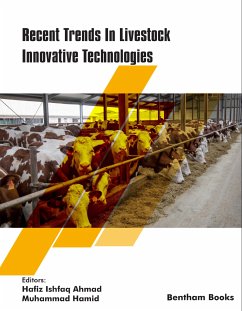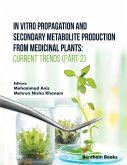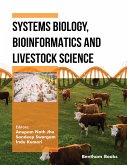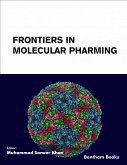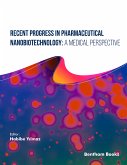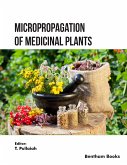Recent Trends in Livestock Innovative Technologies explores the most recent developments and developing trends in the livestock farming industry. The book delves into the application of innovative technologies in various aspects of livestock production, management, and health through edited chapters.
The book starts with an outline of the difficulties the livestock sector faces and the necessity for technological solutions to these difficulties. Subsequent chapters cover innovations in this area. Key topics include:
Advances in genetics and breeding methods: Contributing authors stress the possible impact of issues like marker-assisted selection, genomic selection, and gene editing on the future of animal breeding.
Precision livestock farming: The use of sensor technologies, data analytics, and automation to monitor and control livestock production systems more effectively. The authors examine how these technologies enable real-time monitoring of environmental variables, animal activity, and health, which enhances production, animal welfare, and resource use.
The management of feed and nutrition in livestock production: The book explores cutting-edge feed formulations, precise feeding systems, and alternative feed sources that can increase feed efficiency, lessen negative effects on the environment, and improve animal health.
Fresh methods for illness prevention and management, such as the use of vaccines, diagnostics, and biosecurity measures.
Social and ethical issues related to the adoption of cutting-edge livestock technologies. The authors attempt to give a fair assessment of the advantages and drawbacks of these technologies, and address concerns about animal welfare, environmental sustainability, and public perception of current farming practices.
Recent Trends in Livestock Innovative Technologies is an informative resource for researchers, professionals, and policymakers interested in staying up-to-date with the advancements and future directions of the livestock industry.
The book starts with an outline of the difficulties the livestock sector faces and the necessity for technological solutions to these difficulties. Subsequent chapters cover innovations in this area. Key topics include:
Advances in genetics and breeding methods: Contributing authors stress the possible impact of issues like marker-assisted selection, genomic selection, and gene editing on the future of animal breeding.
Precision livestock farming: The use of sensor technologies, data analytics, and automation to monitor and control livestock production systems more effectively. The authors examine how these technologies enable real-time monitoring of environmental variables, animal activity, and health, which enhances production, animal welfare, and resource use.
The management of feed and nutrition in livestock production: The book explores cutting-edge feed formulations, precise feeding systems, and alternative feed sources that can increase feed efficiency, lessen negative effects on the environment, and improve animal health.
Fresh methods for illness prevention and management, such as the use of vaccines, diagnostics, and biosecurity measures.
Social and ethical issues related to the adoption of cutting-edge livestock technologies. The authors attempt to give a fair assessment of the advantages and drawbacks of these technologies, and address concerns about animal welfare, environmental sustainability, and public perception of current farming practices.
Recent Trends in Livestock Innovative Technologies is an informative resource for researchers, professionals, and policymakers interested in staying up-to-date with the advancements and future directions of the livestock industry.
Dieser Download kann aus rechtlichen Gründen nur mit Rechnungsadresse in A, B, BG, CY, CZ, D, DK, EW, E, FIN, F, GR, H, IRL, I, LT, L, LR, M, NL, PL, P, R, S, SLO, SK ausgeliefert werden.

